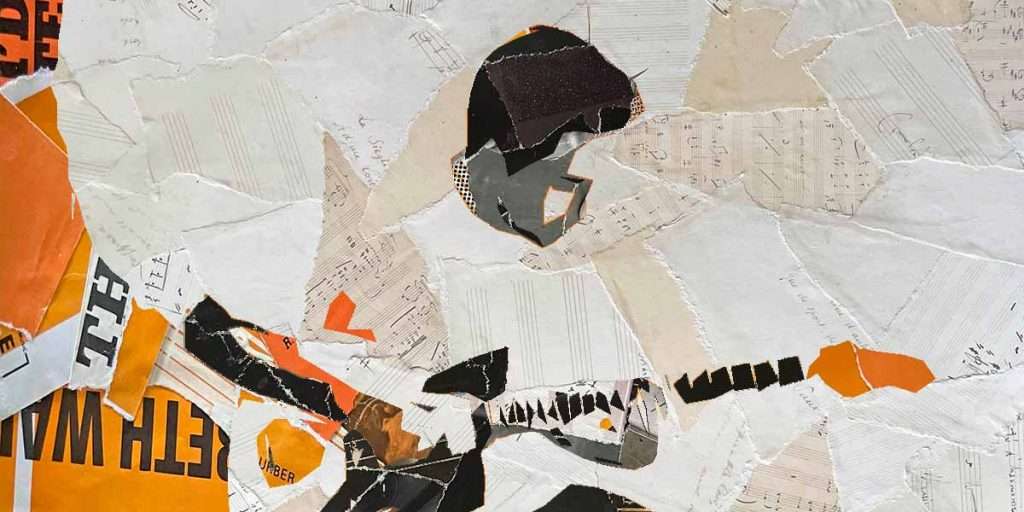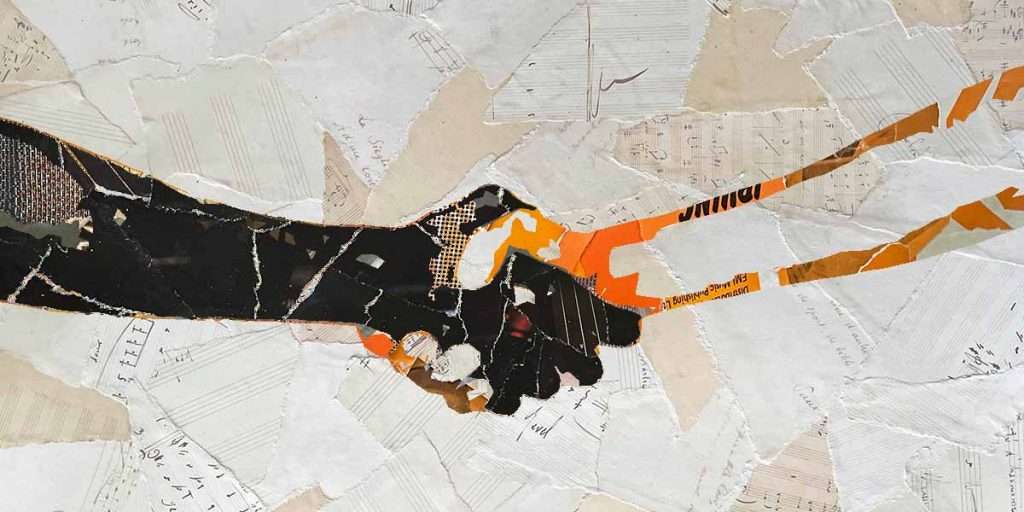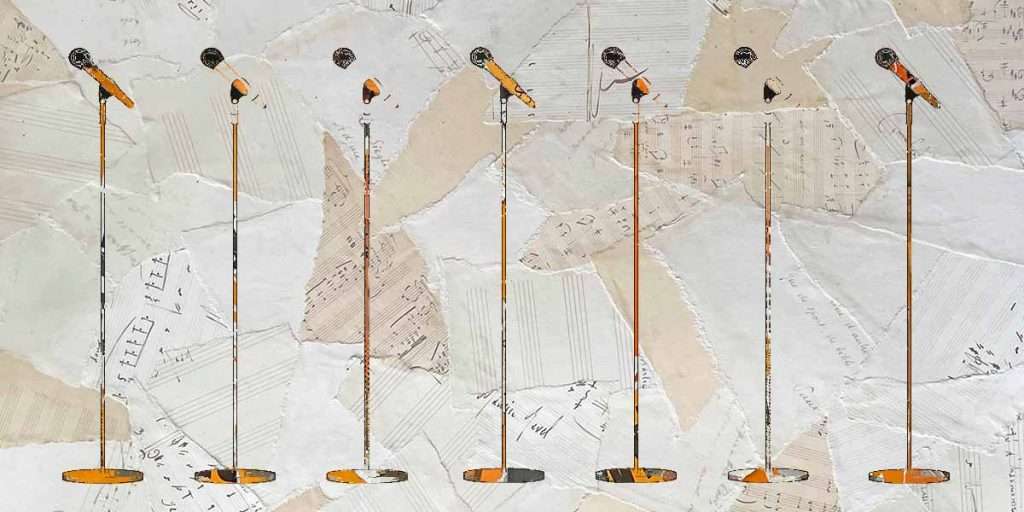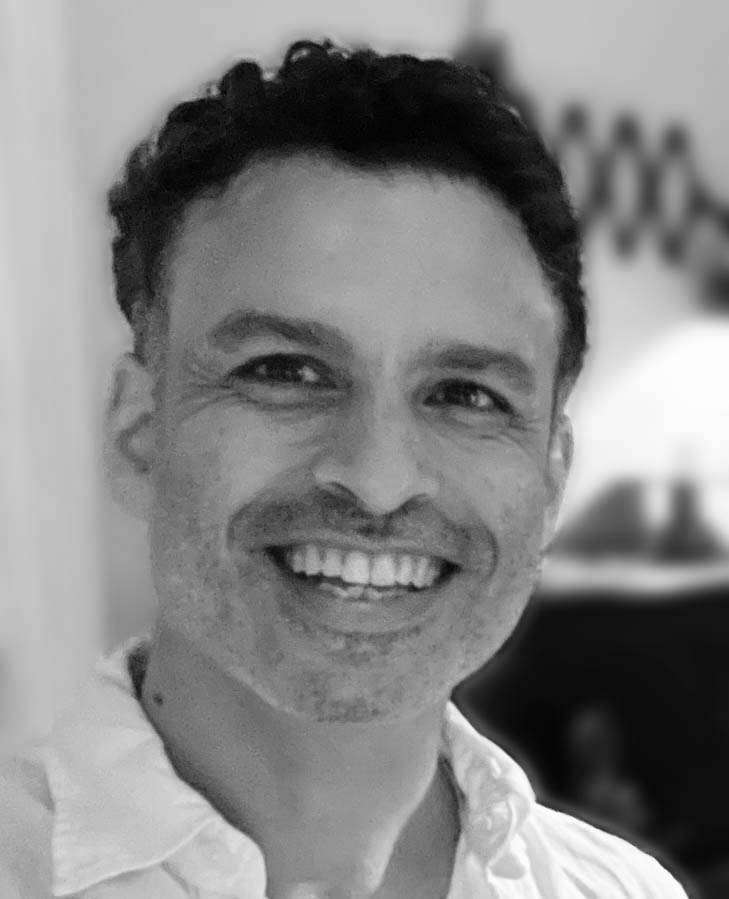What’s the Deal with Music and Mental Health?
A musician’s guide to creating a positive mindset at work and play

Are you a happy musician?
Are you confidant of your musical abilities? Do you feel connected and seen by others? Are you being rewarded for what you offer?
From the outside musicians seem to lead deeply rewarding lives. They’re following their passions, and expressing themselves creatively.
This might be true, but there’s also a darker side to the life of a musician.
Long unsociable hours, worries about money, musical ability and where the next job’s coming from.
It’s not surprising that depression and anxiety are far more prevalent amongst musicians than the rest of the population.
In a study by Record Union, 73% of musicians reported feelings of depression and anxiety around making music.
The good news is, there’s skills you can learn to combat anxiety and depression. They take time, but stick with them and they’ll transform your life.
Music and mental health
Why are so many musicians prone to anxiety, depression and panic attacks?
There’s many hidden challenges that musicians have to face.
CONTENTS:
Work life balance
Dealing with clients
Isolation
Fear of failure
Criticism
Stage fright
Alcohol and drugs
Financial worries
Body pain
Work life balance
When you’re your own boss, and you’ve got deadlines to meet, it can be easy to overwork yourself.
There’s no one to check that you’re taking breaks, connecting with friends or taking days off. And you might find it hard to switch off from music, or feel anxious when taking a break.
Are you looking after your body and eating well? Are you getting enough quality sleep?
Establishing clear boundaries reduces stress
and is key to healthy relationships.
Design a balanced lifestyle for yourself with clear boundaries between work and play. Start by creating a daily schedule of how you’ll spend your time.
Decide what time you’ll start work and when you’ll finish. And create time for admin, marketing and all those extra things you need to do.
Add some short breaks throughout the day to take a walk or do some stretches.
You may want to work in a particular room in your home which you’ll associate with work.
Self care
When you’ve finished work for the day, try out some nurturing activities:
- Feed your creativity
Visit an art gallery, exhibition, or anything that inspires you. Take an art class at the local community college. You can use other art forms to feed your musical creativity.
Take your ‘inner child’ on a date. Only do what the child wants to do, even if it means a trip to the dinosaur museum and ice cream parlour.
This can reconnect you to the source of your playful creativity. If you find yourself mentally criticising this idea, ask your ‘inner adult’ to step aside!
- Relaxation
There’s many ways to relax. One of them is meditation.
Mindfulness is a very simple meditation, where you follow the movement of the breath. You don’t need any tools and don’t even have to close your eyes.
Many people give up on meditation after their first try.
The trick is to start small and build gradually. Set a timer, and practice for 1 minute a day. Your mind will be noisy, busy, and will wander into random thoughts.
When you notice this, gently let the thought go and continue.
It’s that simple.
After some weeks, when you’re comfortable with a minute, make it 2 minutes. It gets easier the more you practice. And before you know it, you’ll have an established meditation practice to keep you calm and balanced.
- Keep fit
Exercising is known to have a positive impact on mood and guard against depression. It also helps you sleep more soundly. Think of that boost to your self esteem too, as your body improves and you meet those fitness goals.
Try going for a daily walk or run in the morning. It’s a great way to feel connected if you have a day of working on your own.
See if there’s any local group activities, like yoga or pilates classes. You might meet some locals. If you like lifting weights, check out the local gyms.
- Take up cooking
Cooking can be a creative and relaxing pastime. It’s also an opportunity to fill you body with healthy foods.
Eating well not only helps maintain weight, it improves mood and provides sustaining energy.
Use fresh ingredients and try cooking soups and stir fries in batches. You’ll have something tasty and nutritious in the fridge for late night post-gig feasts.

Dealing with clients
You can learn to have healthy boundaries in the way you interact with other people. It’s about drawing a line between you and them. Know what you’re prepared to give and what you expect to take in return.
Have a think about where you’d like to draw the boundaries
in your work relationships with clients.
What seems fair to you? How many hours will you work for? What do you expect to get paid? How much do you charge for revisions?
Its good to politely communicate your boundaries to people you work with, so everyone’s on the same page. It’s the equivalent of an informal verbal contract.
Saying no
Sometimes it’s necessary to say no to a client. To their price, timeline or way or working. But saying no isn’t easy if you’re a freelancer who feels desperate for work.
There’s the worry that your client will swiftly move on
to the next person to say yes.
But it’s a matter of self respect and knowing your true worth. Are you really willing to compromise your mental health for a pushy client who wants to get the best deal?
If you’re not used to it, saying no might feel like you’re being rude, or ungrateful.
But people who say no come across as being confident, professional and sure of themselves.
Try practising boundaries with friends who you feel safe with. Start with something small and notice the feelings that arise. Learn to stay with the feelings. They might be uncomfortable, but they’ll eventually pass.
The next time you say no, the feelings will be much easier to tolerate. And over time they’ll fade away.
Isolation
Musicians are well versed at looking like they’re having a great time. It’s part of the image that audiences expect to see. You’re living the dream!
But much of the work behind the scenes, the practice, unsociable hours, travelling and touring can be isolating.
A concert pianist might spend months practicing in a room on his own. He’ll travel to a venue, and be shown the green room, where he’ll wait by himself.
After the high of a great performance and adoring audience, he’ll make his way back to an empty hotel room. The next day he’ll get on a train to another city.
Probably not the lifestyle he imagined while at music college!
Not all musicians experience this level of isolation, but you can probably relate to some aspects of the pianist’s life.
Staying connected
When you’re on tour, or busy with the business of being a musician, you have to make a special effort to stay connected with friends and family.
Musicians are very good at being hyper focused on the task of
making music, and can neglect relationships.
Staying connected is vital for a sense of well being. We’re social animals and our ancestors have roamed in packs for millions of years.
Make time to see people.
Put dates in the diary to meet up with people who get you and make you feel good about yourself.
Try going for long walks in nature where you can connect
and talk about how you’re doing.
If you’re on tour, schedule times to Skype or zoom with friends and family.
If you work at home, take the laptop out to a cafe, a few afternoons a week. Or take a look at shared workspaces, where you can set up office for the day amongst other creatives.

Fear of failure
To go out into the world as a musician takes courage. It’s a quest to follow your heart, despite voices around you saying you’ll never make it.
Most musicians never ‘make it big’ in the sense that they play world class venues, or write soundtracks for Spielberg movies. But they do find work as professional musicians.
All areas of the music industry are intensely competitive.
This can make you feel you need to work 24/7
to stay ahead of the pack.
But working nonstop isn’t sustainable, and can leave you feeling chronically anxious or burnt out.
As a musician you need to work out what failure or success personally means to you.
Is success about reaching every target at the expense of your mental health? Or is it about reaching a level of balance and contentment?
Identity
Think about how important your identity as a musician is to you. Does it make you feel special?
Are you part of the creative elite, destined for stardom?
How would you feel if you lost your place in the band, or got dropped by your label? It would be disappointing for anyone, but if you’re relying on that role to bolster your self esteem, you’ll be loosing both work and your identity.
Redefining failure
Both failure and success are ultimately feelings that you have in response to external events. You can learn to separate the two, so your well-being isn’t at the mercy of your career or identity.
Learn to recognise your feelings as they come up.
Stay with them until they pass.
Because they always do.
Learn to be kind to yourself. Listen to the voice inside that tells you you’re failing. Question where the voice originally comes from. Could it be a voice from someone in authority when you were young?
Consider seeing failure is not being able to accept yourself as you are, and success as being kind to yourself.
Criticism
No one likes to be criticised. But as a musician you’ve put yourself out into the world, where people have their own views. Some will like you, some won’t.
There’s no getting away from this.
When the praise is flowing, it can be intoxicating.
But in these days of faceless social media, criticism is prevalent. And it can be harsh.
Getting unfiltered negative feedback social media, or a review can be shocking. It can trigger depression, and even stop you from making music for a while.
It’s important to stay focused on positive feedback.
Make mini posters with quotes from your positive feedback, and stick them in places where you’ll see them everyday. It’s good to remind yourself of your achievements, however small, on a regular basis.
Rejection
The life of any creative involves a lot of rejection.
Failed auditions, and rejection from producers can get you down. Make a habit of politely asking the reason, so you can make your own evaluation, and decide where to make improvements.
Equanimity
The trick to coping with rejection and criticism is fully accepting that sometimes things go well, and sometimes they don’t.
Maintain balance – don’t get carried away when you’re being
praised, and don’t worry when you’re being criticised.
Stay in the middle, away from the lows and highs.
Of course this takes practice. You can’t control your feelings and shouldn’t try to. You can observe them though, and see them for what they are. Let the feelings flow, whether disappointment, sadness, anger, joy or elation. Observe them with equanimity – don’t give preference to any.
With practice, this leads to a very calm state of mind and mental stability.
It’s also a great skill to have while performing, when you’re dealing with your own internal criticism.

Stage fright
Stage fright, or performance anxiety, is very common amongst musicians. Every musician know what it feels like, and some of the biggest names in the industry have spoken about the debilitating effects.
The symptoms of stage fright can start months before a performance with disturbed sleep and anxiety.
The fear intensifies in the days and hours leading up to the performance. And on stage there are uncontrollable physical symptoms:
- Shaking hands and legs
- Dry mouth
- Shallow breathing
- Tense muscles
- Racing heartbeat
- Excessive perspiration
- Unexpected tics
- Nausea and vomiting
- Upset stomach
These are all symptoms of the ‘fight or flight’ response of the nervous system.
It works like this – if you perceive immediate danger, the adrenal glands pump your body with adrenalin to boost fighting power or running away.
Being on stage can be terrifying.
It’s said to top all other fears, including death. So it’s not surprising our primal bodies react with the fight or flight response.
Some classical musicians have prescriptions for beta blockers. They work on the symptoms by blocking the action of adrenaline and slowing down the heart.
Others have a drink before going on stage, but this runs the risk of ending up with alcohol dependency.
There are other very effective methods to combat stage fright, before during and after the performance:
Do this before the performance
Good practice
The physical symptoms of stage fright are far less debilitating if you have a solid technique. Aim for the body to be in a state of opening while you practice, and use the minimal effort to get the desired result.
The less excess tension in your body,
the easier it is to relax while performing.
Make sure you do enough practice to play your piece well.
Try putting yourself through low stress performance situations, and build up your tolerance gradually. You could put on a concert in front of some close friends, where you dress in your performance clothes and play all the way through.
If possible, run through your programme in the venue you’ll be playing at.
Visit the venue in the morning and walk around the room playing your instrument. Sit in the audience chairs and imagine being them, enjoying your playing. It will make the whole environment familiar, and you’ll feel at home during the performance.
Visualise a successful outcome
As part of your practice routine, imagine you’re in the venue. Think of letting go of your body, and watching it magically create a stunning performance with no effort on your part. Visualise smiling at individual members of the audience as they cheer you on. See yourself celebrating with friends after the event.
Eat something
Eat something an hour or two before the performance. Ideally it will be healthy, easily digestible and able to sustain you through the next few hours. Don’t experiment with new and untested foods, make sure its something that won’t upset your stomach.
Relax
Try establishing a 20 minute relaxation routine before you go on stage. If you make it a regular practice at home, you’ll be able to slip into a deep relaxation quickly. The Alexander Technique is great for this, but you can also try meditation, yoga or other disciplines.
After you’ve relaxed, make some big expansive movements, or do a little dance to get your body flowing.
Do this during the performance
Stay grounded
Because it’s easy to loose touch with your body under pressure, you need to make a continued effort to reconnect. Try bringing your awareness to the feet, and check they’re not gripping.
Think of the soles expanding to make good contact with the floor.
Another area you can observe is your breathing. Don’t change anything, just check you’re not holding your breath. If you practice mindful meditation at home, this will be easy and natural to do.
Choose your response
Performance anxiety is made worse by a racing mind. Thoughts can become disordered and chaotic, which add fuel to the fire.
It’s good to have a phrase to latch onto during the performance. Choose your own positive words that encourage you to open to the audience:
- Setting the music free
- Steady and grounded
- Singing with my friends
Decide that making mistakes is natural. Practice laughing about it to internally, and regarding yourself with kindness and acceptance.
Its about the music
Stay focused on the beauty of the music rather than you as a performer. Relax and let the music speak for itself.
Do this after the performance
Celebrate what went well.
And make a list of what needs improving the next day.
You can devise a practical strategy on what to work on. It could be anything from technique, exposure to live playing, or learning more about connecting with the body.
Getting help
Stage fright is complex, and the causes are different for everyone. Do you find yourself getting the same symptoms in other areas of your life? Maybe while socialising, or at work?
It could be linked to social anxiety, fear of being vulnerable,
or low self esteem.
You can explore these issues with a psychotherapist.
Cognitive behavioural therapy is also very effective for identifying and changing thought patterns.
Alcohol and drugs
Drinking and taking drugs are synonymous with the music industry. Musicians tend to play in the evenings at parties and celebrations where alcohol flows freely and drugs are on hand.
They’re also used to combat stage fright, and self medicate for depression and anxiety.
If you’re drinking every night, try taking one night off every week, with the aim of having 3 nights off eventually. See how it feels to not be drinking.
Are you stressed? Frustrated? Bored?
Drink and drugs are used to disassociate from painful feelings.
If you’re reliant on alcohol or drugs, your mental health is suffering. The constant highs and lows will leave you in an irritable, insecure state. Consider reaching out to an agency to see how they can help you get back on track.

Financial worries
Most musicians are freelancers, meaning they have to run their own small business.
You might have developed entrepreneurial skills, set up a remote recording room, wedding band or record label. Making things happen is a great feeling.
And having no boss to answer to is priceless.
But there’s also no boss to tell you you’ve finished for the day. Or pay the salary every month.
Money can be sparse for a freelance musician. Gigs get cancelled, or you’re expected to work for free.
Struggling for money will always have a negative impact
on your mental health.
When starting out, most musicians don’t realise what the life of a freelance musician really entails. They lack the business skills to keep everything in order, and plan for the future.
Learning business skills
Taking care of the business side of music can be daunting. But that’s only when you’re not clear on what you should be doing, and how to do it properly.
Having clear processes in order can take a huge weight off your mind.
Business skills include:
- Strategy
What are your career goals, and how are you going to make them happen?
Will you be writing for television, playing in a wedding band, or touring the world? How long are you anticipating your musical genre to be in demand?
- Marketing
Is there a market for your music skills? Who are your audience? How will you reach them? How will you network and make connections?
- Finances
Where will your salary come from? Will you tout, sell merchandise or make recordings for television? Do you also need another job for living costs, perhaps non music-related? Do you have an emergency fund for hard times?
- Admin
What are the day to day processes of running the business? You might be sending invoices, applying for funding, paying taxes and sticking to a budget.
Body pain
Many musicians suffer from physical pain while playing their instrument.
This can be anxiety provoking, because the more you try to play through it, the worse it gets.
Pain from playing comes from holding too much tension in the body.
This tension isn’t obvious to the player, because the very tightening causes a numbness in the musculature. A body part can drop out of awareness, only to return as the pain begins.
The causes of excess tension are:
- A past injury
Muscles tend to tighten around the injury in order to protect it.
- Emotional trauma
When feelings are too overwhelming to process, they’re stored as tension in the body
- Poor posture
We don’t always use our bodies in the optimal way. It’s easy to build up habits of tension through misuse.
- Anxiety
Feeling anxious can make you tense, as you try to contain the feeling and gain a sense of control by gripping
Body therapies
You can learn to become more aware of what’s happening in the body. Try body therapies such as Somatic Experiencing or the Alexander Technique.
The Alexander Technique
In Alexander Technique lessons, the teacher will guide you through simple movements. And help you become aware of sensations and tensions as you move.
Over time, you’ll develop your own internal sensitivity, which you can bring to your instrument.
You’ll discover a range of habits, like tensing up during difficult passages, or gripping your instrument too tightly.
Once they enter awareness, they can simply be released.
With the Alexander Technique, it’s possible to develop a pain-free, effortless playing style. That’s why it’s taught at the leading music colleges throughout the world.
The bottom line
Being a professional musicians is one of the most challenging careers you can choose. There’s pressures from all angles, and it’s up to you to identify what’s not working, and put a nurturing system into place.
Establishing boundaries, keeping physically fit and healthy, staying connected, educated, calm and relaxed. These will all keep you on track towards optimal mental health.
If you’re suffering from chronic depression or anxiety, or you’re self medicating, now’s the time to reach out for professional help.
Education is the key to getting a pro sound. I’ve made a guide to help you choose the Best Online Music Production Courses available right now
Author: Daren B

Daren studied classical piano and composition at Trinity College of Music, at undergraduate and postgraduate level.
His music has been performed at the Southbank Centre, Tate Modern, and the Courtauld Institute, and broadcast on BBC Radio 3, Radio 4 and countless TV shows, including The Apprentice, Top Gear and Horizon.
Daren is a former lecturer on the BA Music Course at Goldsmiths College, University of London. He is also a qualified psychotherapist and Alexander Technique teacher.
